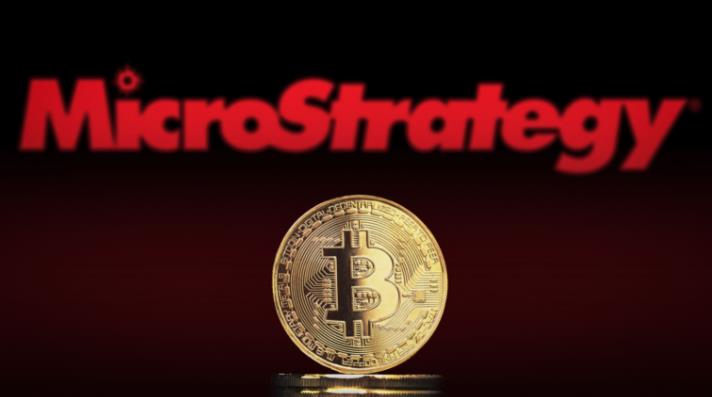Major U.S. banks, including Bank of America and Fidelity, increased their holdings of MicroStrategy stock on their balance sheets during the first quarter, indicating continued interest in indirect Bitcoin BTC -5.28% exposure.
As of the end of March, Bank of America reported buying 86,147 MicroStrategy (MSTR) shares during the first quarter, according to a filing with the SEC. Fidelity also increased its holdings by 97,199 shares during the same period, according to a separate filing.
It’s worth noting that the documents only track transactions from Jan. 1 to March 31 and don’t necessarily reflect the bank’s overall holdings.
Ever since MicroStrategy began holding bitcoin as a reserve on its balance sheet, its stock price has closely tracked the price of bitcoin. Many traders still view MicroStrategy stock as one of the most accessible publicly traded proxies for bitcoin. As of April 4, MicroStrategy held 140,000 bitcoins.
The increase in MicroStrategy stock holdings by major U.S. banks shows their growing interest in Bitcoin and the cryptocurrency market, albeit indirectly.
It’s worth noting that while these banks don’t hold bitcoin directly, their exposure to MicroStrategy stock exposes them to potential fluctuations in bitcoin’s value, as MicroStrategy’s share price is largely influenced by the price of the cryptocurrency.
The move by Bank of America and Fidelity also reflects the growing acceptance of cryptocurrencies as investment assets by traditional financial institutions. Despite the inherent volatility and regulatory uncertainty surrounding cryptocurrencies, major banks are increasingly exploring ways to gain exposure to the nascent asset class.
The interest in bitcoin and cryptocurrencies from major financial institutions is not surprising given the massive surge in bitcoin price and market capitalization in recent years. Bitcoin, once considered a niche asset, has now gained mainstream attention and acceptance as an investment option.
Institutional investors are looking for ways to diversify their portfolios and hedge against inflation, and cryptocurrencies, including bitcoin, have become an attractive option for some.
However, increased interest in cryptocurrencies also comes with risks. The high volatility of the cryptocurrency market, regulatory uncertainty, and the potential for fraud and scams pose significant risks to investors, including financial institutions.
Furthermore, the correlation between MicroStrategy stock and Bitcoin price could expose these banks to potential losses if the price of Bitcoin falls.
Despite these risks, major U.S. banks are cautiously exploring exposure to the cryptocurrency market. Some banks offer cryptocurrency-related services to their clients, such as custody, trading and investment products, while others invest in cryptocurrency-related companies or hold cryptocurrencies indirectly through publicly traded shares such as MicroStrategy.






